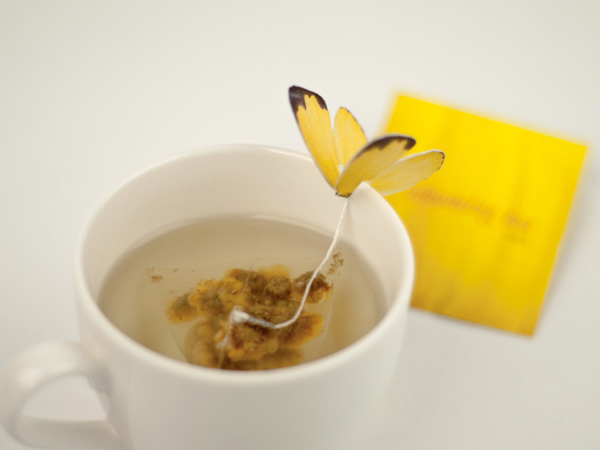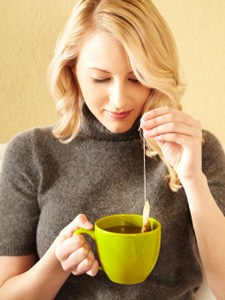Before you boil your next cup of tea, learn about the five conventional tea ingredients that can harm your health.
For many people, sipping on a cup of tea is a good way to unwind after a long day. The drink is found to be the most widely consumed beverage in the world next to water, as approximately half of the American population drinks tea on a daily basis, says The Tea Association of the USA. The tea industry in the U.S. is expected to expand because tea continues to receive medical appraisal for its health benefits.
According to the most recent data provided by the American Tea Association, 2011 was the 20th consecutive year that consumer purchases of tea increased, with retail supermarket sales surpassing the $2.20 billion dollar mark. What's more, consumption away from home has seen a yearly increase of at least 10 percent in the past decade. More than 5,000 studies done on the health benefits of tea have many choosing what was once thought a subordinate drink to coffee. But while opting for tea may be driven by health-conscious motives, the ingredients found in your cup could make you think twice about taking another sip.
Modern tea brands such as Celestial Seasonings and Teavana are widely consumed because of the supported claims that the antioxidants found in tea can ward off chronic illnesses and diseases. "It's anti-carcinogenic. It modulates your (blood) pressure. It's good for your heart. It has antioxidants," said Sundeep Mukherjee, principal adviser to the Darjeeling Tea Association, to USA Today. The health claims have proven to be valid, but the kind of ingredients in your cup of tea can also counteract the benefits of the drink.
Vari Hari, who runs the food blog Food Babe, has performed a series of investigations that involve questioning the practices of food companies. As an avid tea consumer who has a whole drawer dedicated to tea, Hari examined the ingredients found in conventional teas. The investigation has led her to “never look at tea in the same way again,” she said in her blog.
Pesticides In Your Tea?
Celestial Seasonings
In an analysis done by the Glaucus Research Group, the company found a jaw-dropping amount of pesticides in one of the most popularly consumed tea brands, Celestial Seasonings. Ninety-one percent of the teas from this brand were found to have pesticide residues that exceeded pesticide tolerances, or limits, in the U.S. Most teas are not washed before they are placed in the tea bags, putting tea drinkers at risk of being exposed to cancer-causing pesticides. Hari gave the example of Sleepytime Kids Goodnight Herbal that contained 0.26
ppm of propachlor, a herbicide and a carcinogen under California’s Proposition 65.
Celestial Seasonings has received two letters issued by the U.S. Food and Drug Administration (FDA) regarding the poor quality in its tea ingredients after propargite was found in Celestial Seasonings' Wellness tea line. The carcinogen and developmental toxin, propargite, was classified as a human carcinogen based on the appearance of intestinal tumors in test animals, reports the U.S. Environmental Protection Agency.
Artificial Flavoring
A majority of Teavana teas, such as Wild Orange Blossom, contain added flavor. The brochures for these teas contain phrases such as “no artificial colors,” and the ingredients list says “flavoring,” but leaves it ambiguous as to whether or not these flavors are natural or artificial. The added flavors in Teavana teas possibly contain manipulations of chemicals such as crude oil and coal tar. Coal tar is an additive used in flavoring of candy, alcohol, and other foods, says Healthychild.org.
Read the rest of this story HERE


